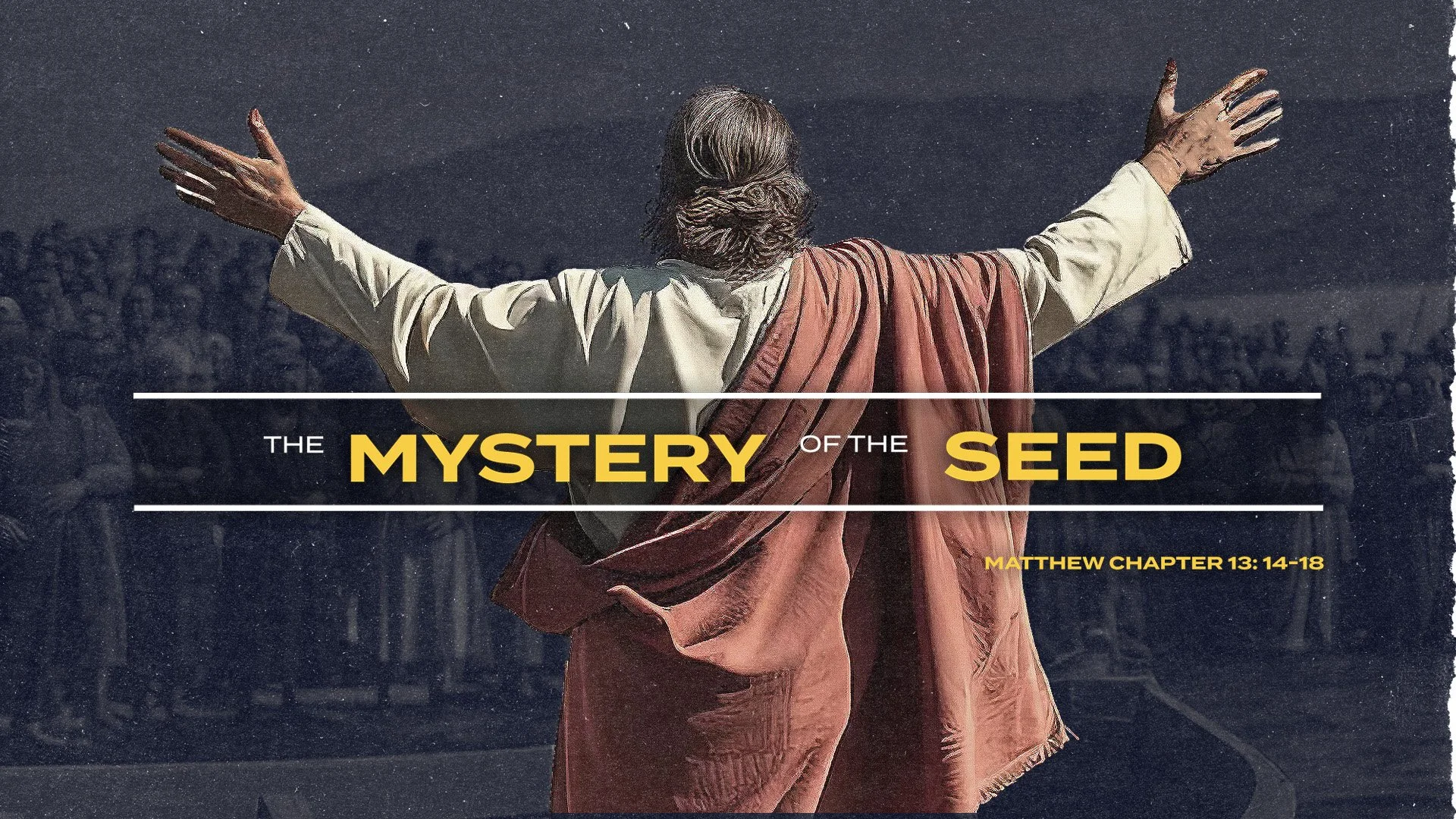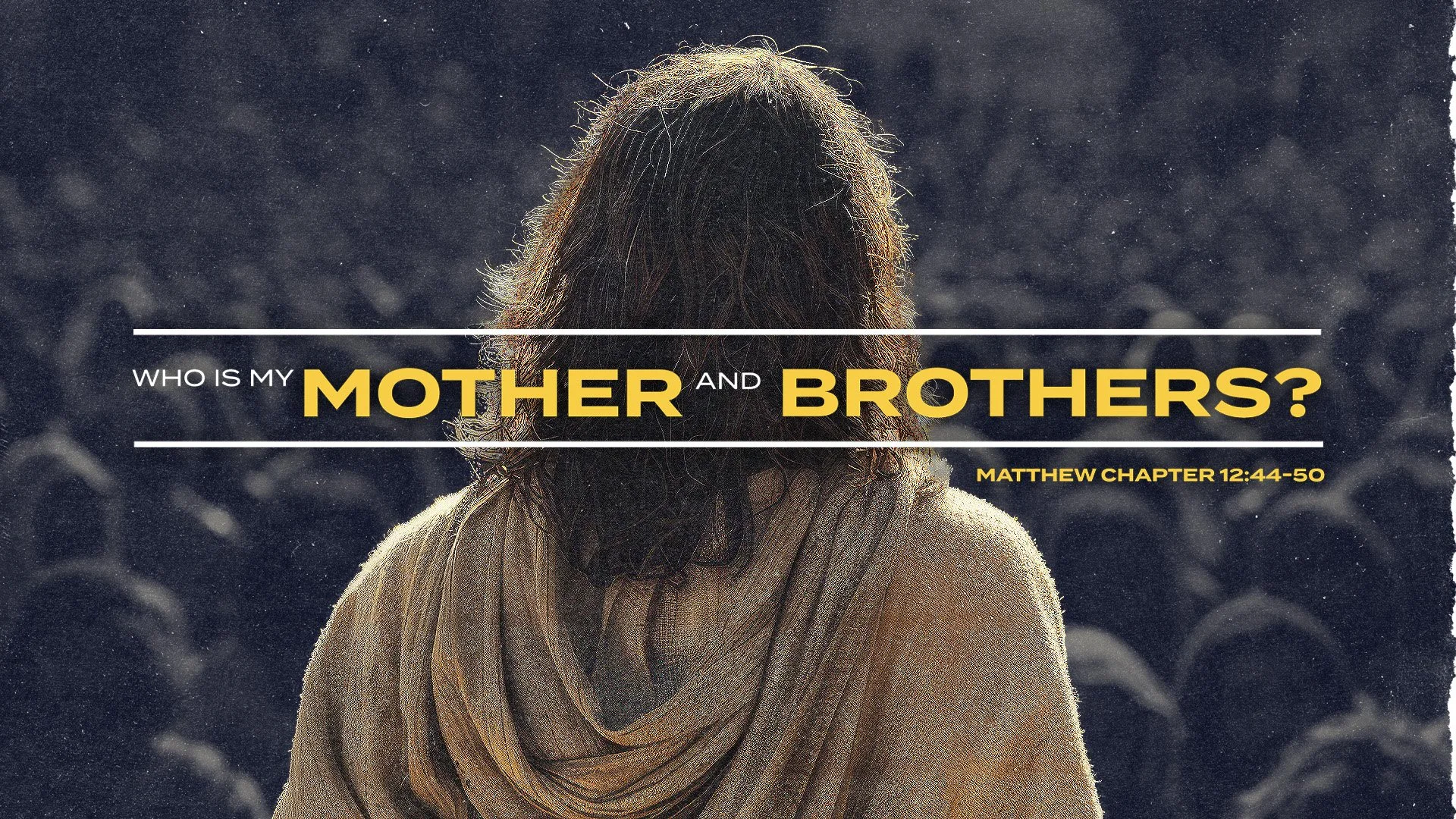Understanding the Parable of the Sower
You're not stuck being spiritual roadkill. The Parable of the Sower reveals that you can choose what kind of soil your heart becomes. Will you be the rocky ground that withers under pressure, the thorny soil choked by worldly worries, or the good soil that bears fruit thirty, sixty, and a hundredfold? The kingdom of heaven is yours for the taking - but what kind of soil will you choose to be?
The Soil You Choose
What if the parable of the sower isn't about God choosing who succeeds spiritually, but about the choices we make every day? Jesus didn't create you to be roadkill - you get to decide what kind of soil your heart becomes. Are you responding to confusion about God with frustration or with humble trust?
The Secrets of the Kingdom
Ever wonder why Jesus suddenly started speaking in riddles? The day the Pharisees accused Him of using evil power, Jesus began casting forth truth through parables. This wasn't coincidence—it was prophecy fulfilled. What secrets of the kingdom are hidden in plain sight that we might be missing? Are you stretching your ear toward God's mouth, or just casually listening?
Who is my Mother, my Brother?
Jesus shocked his audience when he asked: Who is my mother and who are my brothers? His answer will challenge everything you think you know about family and belonging. Are you ready to discover what truly makes someone your spiritual family?
Less Deliverance, More Repentance
Can casting out demons actually make your spiritual condition worse? Jesus' shocking parable in Matthew 12 reveals why deliverance without repentance leaves you more vulnerable than before. An empty spiritual house is an invitation for seven demons to move in. Are you focusing on removing the negative while forgetting to fill the space with God's presence?
Greater Than Jonah, Greater Than Solomon
The religious leaders had seen Jesus heal the sick, raise the dead, and cast out demons. Yet they still demanded more signs. Why? Because the problem wasn't lack of evidence - it was unwillingness to surrender control. The violent city of Nineveh repented without seeing a single miracle, while these leaders refused to change despite witnessing thousands. What areas of your life are you keeping off-limits to God's lordship?
Empty Words, Empty Hearts
\\\\\\The unforgivable sin isn't a careless word or mistake, but the willful, persistent rejection of God's grace by attributing the Holy Spirit's work to evil forces. This sin becomes unforgivable not because God withholds mercy, but because a hardened heart refuses to receive it. Without the Holy Spirit's conviction, repentance becomes impossible, and without repentance, there can be no forgiveness. We must examine our hearts and recognize that the most dangerous force isn't demonic power, but rejecting the Holy Spirit's ability to save, heal, and restore our lives.
Satan Drives Out Satan
If Satan's mission is to steal, kill, and destroy, why would he set captives free? Jesus' powerful response to the Pharisees reveals a shocking truth about spiritual warfare that every believer needs to understand. Are you gathering people to Jesus or scattering them through criticism? The answer might surprise you.What if true power isn't about force, but about gentleness? Jesus revolutionized kingship by choosing restoration over punishment, healing over crushing. He doesn't snuff out flickering flames - He fans them back to life. Are you ready to discover the gentle king who brings hope to all nations?
Justice Through Victory
What if true power isn't about force, but about gentleness? Jesus revolutionized kingship by choosing restoration over punishment, healing over crushing. He doesn't snuff out flickering flames - He fans them back to life. Are you ready to discover the gentle king who brings hope to all nations?
Greater Than the Temple
God's shocking declaration in Hosea 6:6 changes everything: He delights in mercy rather than sacrifice. What does this mean for how we live today? Jesus quoted this verse when defending His ministry to outcasts and sinners. Are we more concerned with religious performance or showing God's heart to others?
Hidden From the Wise
God hides His truths from the wise but reveals them to the humble. Are you approaching God with childlike faith or intellectual pride? The religious experts of Jesus' day knew Scripture better than anyone, yet missed Him completely. Meanwhile, humble hearts received the kingdom. Which tree are you eating from - knowledge of good and evil, or the tree of life? Jesus offers rest for your weary soul, but it requires the humility to admit you need Him.
Because They Did Not Repent
Are you eating from the tree of knowledge or the tree of life? There's a crucial difference between not knowing and not caring when it comes to spiritual transformation. Jesus condemned entire cities not for being imperfect, but for witnessing miracles and remaining unchanged. True repentance isn't just saying sorry - it's the key that unlocks the kingdom of heaven in your life. What fruit in your life needs to change?
Subjected to Violence
After 400 years of divine silence, God broke through with explosive force when John the Baptist appeared. Jesus declared that even the least in God's kingdom is greater than John because greatness is measured by proximity to the King, not achievements. The kingdom advances with unstoppable momentum, but many miss it by clinging to expectations instead of accepting what God has already fulfilled. Rather than critiquing God's methods from the sidelines, we're called to participate in His kingdom movement.
More Than a Prophet
Even John the Baptist questioned God's plan from prison. If the prophet chosen before birth to prepare the way for Jesus struggled with doubt, what does that say about our own questions? Sometimes God's work doesn't come in the package we expected. Are you missing His activity because it doesn't look like your expectations?
Do Unto Others
You can't take off your Christianity like a hat when you leave church. When you walk into any room, Christ walks in with you. But here's the real question: Are you trying to manage where God is present in your life, or are you letting Him transform every area? Your treatment of people is the visible proof of your invisible devotion.
The Enemy in Your House
Sometimes the enemy isn't operating in your city - sometimes the enemy is operating in your circle. Jesus said He came to bring a sword, not peace. What does this mean for your family relationships when you choose to follow Him wholeheartedly? The gospel doesn't divide because it's broken - it divides because it exposes what's broken in us.
The Prince of Demons
If God notices every sparrow that falls and numbers every hair on your head, why do we struggle to trust Him with our daily challenges? What fear have you come into agreement with that keeps you from living out your calling?
Flogged in the Synagogue
Jesus prepared his disciples for the harsh realities of kingdom mission, warning them they would face opposition like sheep among wolves. He instructed them to be shrewd as serpents yet harmless as doves, combining wisdom with innocence. When facing trials, God would provide the right words through His Spirit. Jesus warned that even families might turn against them, as the kingdom exposes divided loyalties.
Judgement Worse Than Sodom
What you carry can easily become what you trust. Are you hoarding resources because you don't really trust God to provide? Jesus sent his disciples out with nothing but faith - no money, no backup plan, just radical dependence on the Father. Sometimes rejection is just God setting up redemption. What dust do you need to shake off today?
To the Jew First
Are you trying to change the world without letting God change you first? Jesus gave His disciples power to heal and free others, but that power had to transform their own lives first. The kingdom of heaven starts at home before it can reach the world. How is God's kingdom power showing up in your daily life?Are you feeling spiritually exhausted and burdened? Jesus saw crowds as 'harassed and helpless like sheep without a shepherd'—and His solution wasn't more religion but transformation. If your faith leaves you harassed and helpless, it's not faith—it's a fraud. What fields has God placed in YOUR life to harvest? The kingdom doesn't just rescue sheep; it transforms them into shepherds.




















